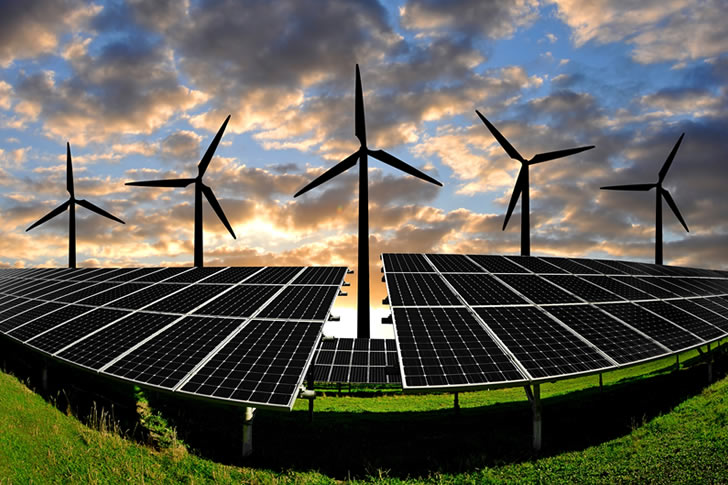Incorporating renewable energy into our daily lives can significantly contribute to a sustainable environment. Here are actionable tips and advice to enhance your green living initiative.

Understanding
Renewable Energy
What is Renewable Energy?
Renewable energy comes from resources that naturally replenish themselves over short periods, like solar, wind, and hydropower. Unlike fossil fuels, these energy sources are sustainable and environmentally friendly.
Why Choose Renewable Energy?
Adopting renewable energy reduces greenhouse gas emissions, improves public health through cleaner air, and decreases our dependence on fossil fuels, which are finite and environmentally harmful.
Practical Ways to Utilize
Renewable Energy
Solar Power
Install Solar Panels
: This is one of the very efficient ways to harness solar energy. Solar panels can be installed on rooftops and can significantly reduce your electricity bills.Solar Water Heaters
: These devices use solar energy to heat your water, reducing the need for electric or gas heaters.Solar-Powered Gadgets
: From garden lights to phone chargers, many gadgets now use solar power, reducing the need for batteries and electricity.
Wind Energy
Small Wind Turbines
: If you have ample space, consider installing small wind turbines. They can generate enough electricity to power homes or small businesses.Wind Farms
: While more industrial, supporting local wind farms by advocating for them or investing in wind energy stocks can contribute to a broader adoption of wind power.
Hydropower
Micro-hydropower Systems
: If you live near a flowing water source, micro-hydro systems can offer a reliable and continuous source of electricity.Support Hydroelectric Projects
: Advocate for and invest in regional hydroelectric projects that generate power with minimal environmental impact.
Benefits of Renewable Energy to the
Environment
Reduction in Air Pollution
Utilizing renewable energy sources can reduce the release of pollutants that contribute to smog, acid rain, and respiratory issues. Cleaner energy sources mean cleaner air for everyone.
Mitigating Climate Change
Renewable energy significantly cuts down on greenhouse gas emissions, which are primary contributors to global warming. Transitioning to renewables is a crucial step in combatting climate change.
Conservation of Natural Resources
Renewable energy doesn’t deplete natural reserves such as coal, oil, and natural gas. It ensures these resources can stay untapped, preserving natural habitats and biodiversity.
Simple Tips for a
Sustainable
Lifestyle
Energy Efficiency
LED Bulbs
: Swap traditional light bulbs with LED bulbs—they use less energy and last longer.Energy-Efficient Appliances
: Look for the Energy Star label when buying new appliances; they consume less electricity and water.Insulation
: Insulate your home properly to maintain temperature, reducing the need for electrical heating or cooling.
Water Conservation
Fix Leaks
: A leaky faucet or pipe can waste hundreds of gallons of water annually.Low-Flow Fixtures
: Install low-flow showerheads and faucets to reduce water usage without sacrificing water pressure.Rainwater Harvesting
: Collect rainwater for gardening and other non-potable uses.
Waste Management
Reduce and Reuse
: Minimize waste by buying only what you need and reusing items whenever possible.Recycle
: Properly separate recyclables from trash to ensure materials like paper, glass, and plastic can be processed and reused.Compost
: Create a compost system for organic waste to enrich soil naturally.
Supporting Policies for a
Sustainable
Environment
Advocate for Renewable Energy Policies
Contact Legislators
: Encourage local and national legislators to support renewable energy subsidies and regulations.Community Initiatives
: Participate in or create community programs that promote clean energy, such as community solar projects.
Incentive Programs
Tax Credits and Rebates
: Take advantage of public sector programs offering tax credits and rebates for renewable energy installations.Grants and Subsidies
: Look into grants and subsidies available for renewable energy projects or energy-efficient home improvements.
Educate and Inspire Others
Environmental Awareness
Workshops and Seminars
: Attend and promote educational events that discuss the importance of renewable energy and sustainability.Social Media
: Use social media platforms to share tips, articles, and success stories about incorporating renewable energy and sustainable practices.
Lead by Example
Personal Actions
: Your commitment to a renewable and sustainable lifestyle can influence friends, family, and community members to follow suit.Community Projects
: Initiate or support projects that focus on environmental conservation and renewable energy adoption within your community.
Conclusion
Transitioning to renewable energy is a powerful way to achieve a sustainable environment. By applying these tips and advocating for broader policy changes, we can collectively make a significant impact on our planet’s health. Embrace renewable energy and a sustainable lifestyle today for a better tomorrow.









